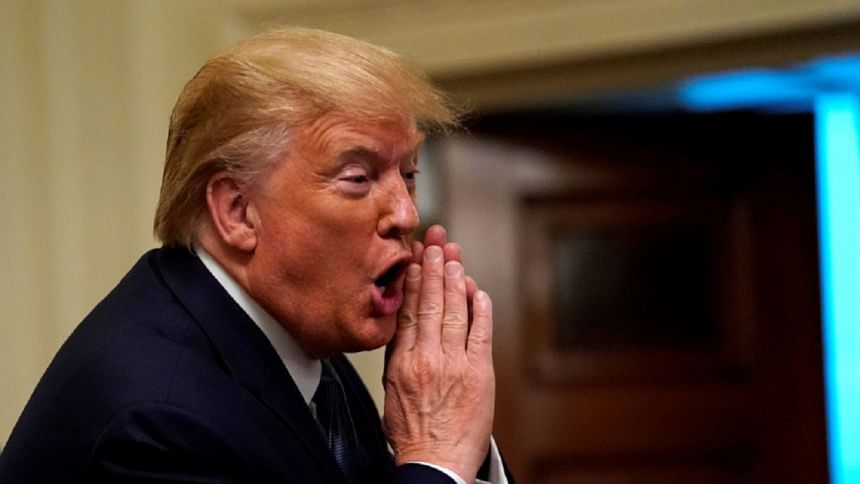The Age of Alternate Reality

Common sense tells us that life's experiences should help us acquire a degree of certainty about most issues. However, I seem to be the exception to this conventional wisdom. With age I am becoming increasingly unsure about my beliefs. While I was growing up, there were certain social norms and truths that remained indisputable. One of them was that lying was wrong—even misleading people with white lies was unacceptable. Today we live in a "post-truth" era, where powerful leaders like Donald Trump, Narendra Modi, Vladimir Putin and Boris Johnson are creating an alternate reality based on a gross distortion of facts. The general purpose is to gain either political or business advantage.
Politicians have always twisted facts and lied for a variety of reasons: to camouflage or inflate security concerns, or cover up personal scandals, or overstate their achievements to win approval. But these spins were based on some facts and data that were manipulated to mislead the public and win votes. Today's leaders, however, seem to be manufacturing outright lies in their political factory and mass-propagating them through the social as well as mainstream media. The deception is so well-orchestrated that it casts a shadow of doubt on actual reality. Interestingly, Trump advisor Kellyanne Conway even conjured up a name for these falsehoods when she justified her boss's exaggerated estimate of the size of the crowd at his inauguration. She termed it as "alternative facts!"
President Trump's disingenuousness, of course, marks a new high in the art of political manipulation. He has called climate change a hoax, claimed that there were a million illegal votes in California (which voted for the Democrats in the 2016 US elections), and has termed his impeachment investigation a "witch hunt". He lies so prolifically that the Washington Post reported that he made 2,140 false or misleading claims during his first year in office—an average of 5.9 a day. The most frightening part is that he has mastered the art of transforming his lies into truths. First, he floats a preposterous idea. Then he comes up with false evidence, quoting non-existent sources, and repeats his lies. Finally, when his followers start to believe him, he tells them, the media and his opponents have been misrepresenting facts all along. Unfortunately, this pattern has been imitated by many other politicians with considerable effectiveness.
Political lies are not just restricted to fake news; it's also fake science, fake history and fake economics. False claims about the UK's financial relationship with the EU helped swing the vote in favour of Brexit. Modi has blatantly misrepresented and distorted India's history to promote his party's Hindutva mandate. Russia ramped up its disinformation campaign in the run-up to elections in France, Germany, the Netherlands and other countries in concerted efforts to discredit and destabilise democracies and tip the global balance of power.
As noted above, when lies are repeated persistently by powerful men and women, they begin to sound like "truth". Also, these leaders have cronies who are constantly working to bolster their ludicrous theories by doctoring facts and documents. Elections have thus become a contest of who is better at exploiting the propaganda machinery. Elections are no longer won on facts and figures describing the actual state of affairs on the ground. Unfortunately, a lot of the falsehood is spoken under the garb of freedom of expression. It may thus be useful to remember Daniel Patrick Moynihan's well-known observation that "everyone is entitled to his own opinion, but not to his own facts!"
The lies propagated by political leaders have a dangerous fallout: they invoke fear among the masses by creating suspicion and mistrust between groups. So much so that one group believes that it is being attacked by the "other"—be it immigrants or natives, coloured or white people, Jews or Muslims. As a result, our world is fast becoming a battlefield where groups are fighting with each other without any goal or objective. Unfortunately, it's this antagonism, anger, chaos and confusion that the politicians seem to be capitalising on.
How did this happen? How did truth and reason become such endangered species, and what does this threat portend for our public discourse and the future of our politics and governance? There are no easy answers to these questions and no easy remedies for this global malaise. However, whatever the cause, it is essential that citizens remain vigilant and defy the manipulative tactics that autocrats and power-hungry politicians depend on to subvert the truth. We must not forget that without facts, there can be no rational debate over democratic policies, and no way to hold elected officials accountable to the public.
And it is up to us, the people, to reject the perversion of truth that our leaders spin out for their political gains. Regrettably, most of us have grown cynical or are reluctant to actively resist the onslaught of propaganda that we encounter on a daily basis, even when we have the knowledge and capacity to challenge these falsehoods. In the process, we are allowing the autocrats to not only dominate the public arena, but also occupy our minds by forcing us to believe in a fictitious reality.
George Orwell spent his life resisting and fighting totalitarian tendencies in Western societies. After the publication of his dystopian novel "1984", which exposes the Machiavellian strategies and lies that authoritarian leaders use to subjugate citizens, he said: "The moral to be drawn from this dangerous nightmare situation is a simple one: Don't let it happen. It depends on you."
Milia Ali is a Rabindra Sangeet exponent and a former employee of the World Bank.

 For all latest news, follow The Daily Star's Google News channel.
For all latest news, follow The Daily Star's Google News channel. 



Comments